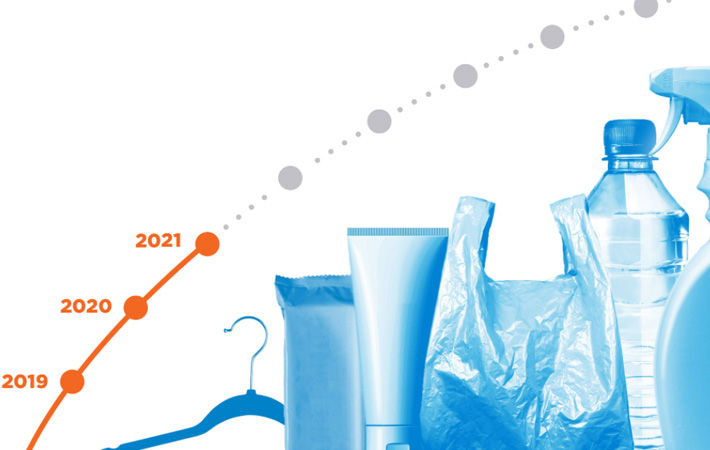
Global commitment brands and retailers have collectively reduced their consumption of virgin plastic in packaging for the second year running, according to the data. This trajectory will be accelerated by new commitments that are set to see virgin plastic use fall by almost 20 per cent in absolute terms by 2025 compared to 2018. Setting a reduction target has become mandatory for all the Global Commitment’s 63 brand and retail signatories in 2021. When combined with the impact of existing commitments, it is estimated that raising ambitions to this level will avoid eight million tonnes of virgin plastic from being produced each year by 2025. That is equivalent to keeping 40 million barrels of oil in the ground, the company said in a press release.
While this virgin plastic reduction is a welcome trend, current and planned progress is driven largely by switching from virgin plastic to recycled plastic. This is just one part of the solution, but does not address the total amount of plastic packaging on the market. There is very little evidence of ambitious efforts to reduce the need for single-use packaging in the first place. Less than two per cent of signatories’ plastic packaging is reusable, and for more than half of all signatories, this is 0 per cent. Much more focus must urgently go to eliminating single-use packaging.
While this virgin plastic reduction is a welcome trend, current and planned progress is driven largely by switching from virgin plastic to recycled plastic. This is just one part of the solution, but does not address the total amount of plastic packaging on the market. There is very little evidence of ambitious efforts to reduce the need for single-use packaging in the first place. Less than 2 per cent of signatories’ plastic packaging is reusable, and for more than half of all signatories, this is 0 per cent. Much more focus must urgently go to eliminating single-use packaging.
“We won’t recycle our way out of plastic pollution, eliminating single-use packaging is a vital part of the solution. Alarmingly, our report shows little investment in this. We need much more urgent focus on upstream innovation to rethink how to deliver products without packaging or by using reusable packaging. This doesn’t just allow us to design out waste, it also means we can design out carbon emissions whilst creating new opportunities for business. Shifting just 20 per cent of plastic packaging from single-use to reuse is an opportunity estimated to be worth $10 billion,” Dame Ellen MacArthur, founder and chair of trustees at Ellen MacArthur Foundation said in a statement.
“We won't recycle our way out of plastic pollution, eliminating single-use packaging is a vital part of the solution. Alarmingly, our report shows little investment in this. We need much more urgent focus on upstream innovation to rethink how to deliver products without packaging or by using reusable packaging. This doesn’t just allow us to design out waste, it also means we can design out carbon emissions whilst creating new opportunities for business. Shifting just 20 per cent of plastic packaging from single-use to reuse is an opportunity estimated to be worth $10 billion,” Ellen MacArthur added.
“The Global Commitment is showing us that concerted voluntary action by actors across the value chain, including governments, can begin to shift the needle in the fight against plastic pollution. The efforts from all signatories in reporting their progress transparently and with agreed metrics is truly commendable, and a great example to learn from. The frontrunners are also demonstrating that we can decouple the benefits we derive from plastic from the consumption of virgin plastic, and this is ground-breaking. But the action from these frontrunners can be boosted by a comprehensive, inclusive and global approach,” Inger Andersen, executive director at UNEP said.
Fibre2Fashion News Desk (GK)